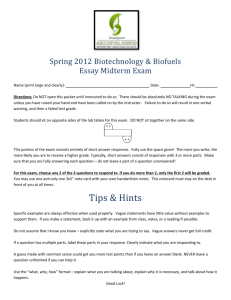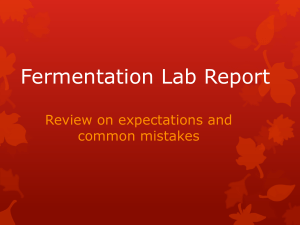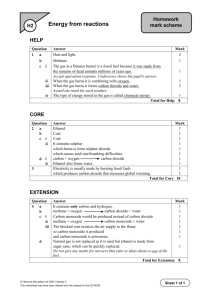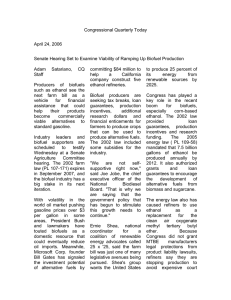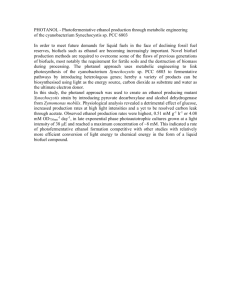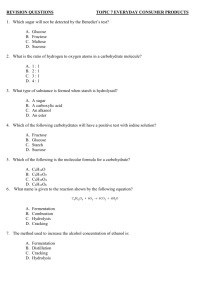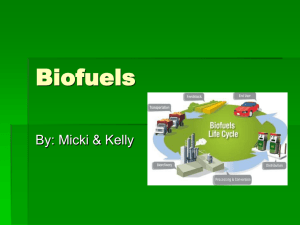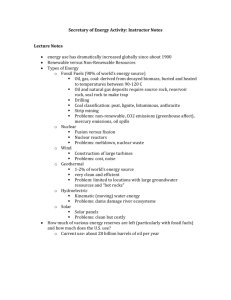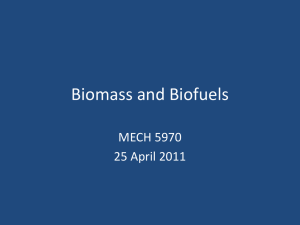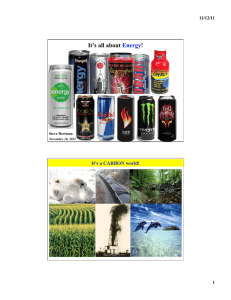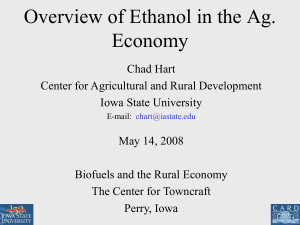Ways to teach Scientific Concepts in a Social Studies Class
advertisement
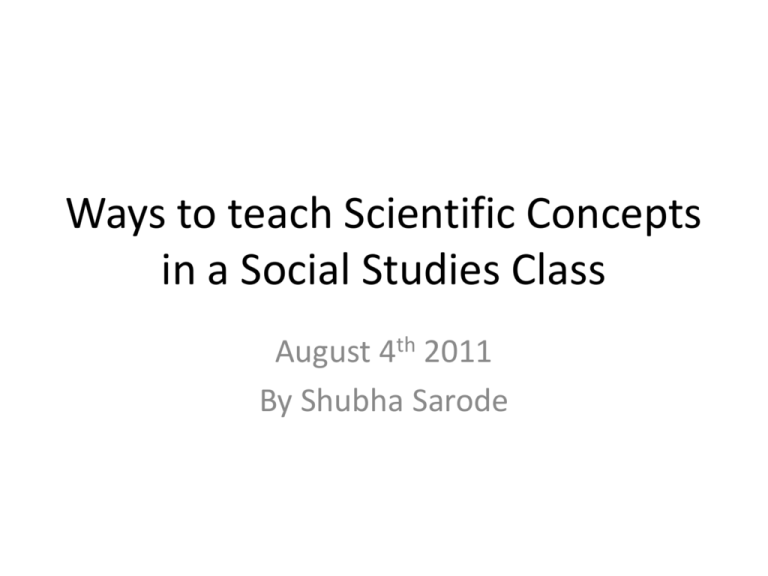
Ways to teach Scientific Concepts in a Social Studies Class August 4th 2011 By Shubha Sarode What is social studies? What is the scientific process? • • • • • • Have a problem which needs a solution Studying the problem, forming a hypothesis Testing your ideas Analyzing results Coming to conclusions Using those conclusions to make impacts in the world • Understanding these impacts in the bigger scheme of things We should always ask questions! • Asking questions! Where can social studies intersect with science in a classroom? • • • • • Biofuels Acid Rain Chlorofluorocarbons (CFC’s) Clean Coal Technology Nuclear Power What are greenhouse gases? Any gas that absorbs infra-red radiation in the atmosphere. • Carbon Dioxide (CO2) • Methane (CH4) • Nitrous Oxide (N20) • Fluorinated Gases How is Carbon Dioxide Released into the Atmosphere? • Burning of 3 main fossil fuels – Coal, Oil & Natural Gas – Burning of these carbon containing compounds results in combustion: Example: CH4 + 2O2 ---> CO2 + 2H2O + HEAT (energy) Biofuels Concept Video • Converting Biomass to Liquid Fuels • http://www.nrel.gov/learning/re_biofuels.ht ml Combustion of Ethanol • C2H5OH + 3O2 → 2CO2 + 3H2O + heat • (Ethanol + Oxygen carbon dioxide + water + heat) • Total GHG emission of carbon dioxide for one molecule of glucose is: 6 molecules of Carbon dioxide • *numbers based on fermentation of ethanol and combustion of ethanol equations Advanced Initiative Energy Mandate: February 20th 2006 • Renewable ethanol and biodiesel. The energy bill signed by the President last summer established a renewable fuels standard to require the use of 7.5 billion gallons of ethanol and biodiesel by 2012, and extended tax benefits enabling both fuels to compete in today’s market. • Alternative fuel facilities. The energy bill also provides a 30% tax credit for installation of alternative fuel stations, up to a maximum of $30,000 per year. Currently only 556 public “E85” (85% ethanol) fueling stations exist in the U.S, and many more will be needed to increase the use of renewable fuels above the 10% that can be blended into conventional gasoline. How can social studies and science work together to create critical thinkers? • Make sure you have the right resources! (anything that ends with .gov, .org and other educational websites) • Extra credit opportunities • Current Event articles • Collaborate with the science teacher at your school Other Topics in Sustainability • • • • Acid Rain- Clean Air Act CFC’s – Montreal Protocol Clean Coal Technology – Election of 2008 Nuclear Power – Chernobyl, Three Mile Island, even the most recent Japan disaster Good Resources to Brush up on Science • Acid Rain: http://www.epa.gov/acidrain/what/index.html • http://nadp.sws.uiuc.edu/maps/Default.aspx (click on NTN for network, deposition for map type and NO3 or SO4 for analyte and years to look at impact • CFCs: http://ozonewatch.gsfc.nasa.gov/monthly/climatology_10.html • Clean Coal Technology: http://www.youtube.com/watch?v=BdLFUNrinG8 • http://www.nytimes.com/2009/09/22/science/earth/22coal.html?_r=1 • Nuclear Power: http://video.google.com/videoplay?docid=2201447884087561869&q=nuclear+reaction&hl=en# • http://www.visionlearning.com/library/flash_viewer.php?oid=3602 • http://www.nrc.gov/reactors/operating/map-power-reactors.html Need more help? • These are just some ideas, if you have any questions, please contact me at shubha.sarode@gmail.com

